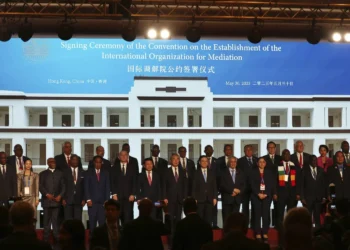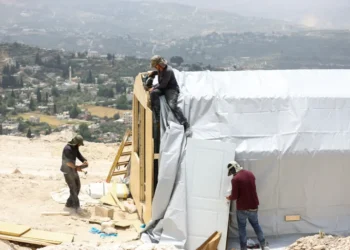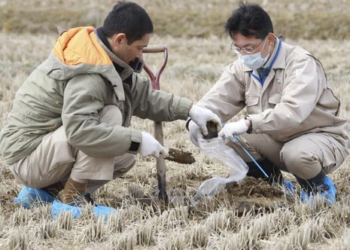If the situation of Gaza’s population during the initial phase of the ceasefire was already precarious, as aid agencies have repeatedly warned, the announcement of a complete blockade on humanitarian supplies is nothing short of a death sentence.
Palestinians in Gaza are now facing an even darker prospect: hunger and starvation—just in time for Ramadan—after Israel cut off all humanitarian aid to the beleaguered enclave.
For the duration of the ceasefire, about 600 trucks a day have crossed into Gaza, carrying a total of 57,000 tons of food.
This is a similar level to prewar aid deliveries, but aid agencies say that was for a population in a much better physical condition than the undernourished inhabitants now, and that also had the capacity to produce some of its own food.
In its latest report, in late February, the UN Office for the Coordination of Humanitarian Affairs said that 876,000 Palestinians in Gaza still suffered from emergency levels of food insecurity, and 345,000 were facing catastrophic food insecurity.
Israel has consistently denied allegations by aid organisations during the 15-month military campaign in Gaza that it was using food as a weapon of war, insisting that blockages in supplies were a result of other factors.
However, Sunday’s announcement by Prime Minister Netanyahu’s office made no attempt to disguise the government’s actions or the goal behind them, which is to gain advantage at the negotiating table.
Israeli political analysts have suggested that Netanyahu agreed to the ceasefire under pressure from US President Donald Trump, confident that the agreement would never reach a second phase. Since the start of the ceasefire, he prevented Israeli negotiators from discussing a second phase.
Even in the six weeks of the ceasefire, Israel kept tight control of what was allowed in humanitarian shipments.
Aid agencies complained that a lot of medical equipment was blocked on the grounds it was “dual use” and that water tankers were also blocked, leaving people dependent on wells, which in the wake of conflict are insufficient for the population’s needs.
Health issues remain a primary concern, with an estimated 80% of Gaza’s health infrastructure destroyed by the war and 1,000 medical workers killed.
The World Health Organization has estimated there are up to 14,000 Palestinians in Gaza in need of medical evacuation, including 4,500 children.
According to Amjad al-Shawa, the Director of the Palestinian Non-Governmental Organisations Network, the health situation in the Gaza Strip is a “catastrophe.”
He said that in Gaza City alone there was 180,000 tons of solid waste that Israeli authorities had blocked from being removed, with the result that sewage was overflowing. “That has severe health implications in the conditions now in Gaza,” Shawa said.
Separately, Kathleen Spencer Chapman, the External Affairs Director at Plan International UK, said, “Without the influx of humanitarian aid promised by the ceasefire agreement, thousands more could die from hunger and related diseases alone.”
Right groups have slammed Israel’s move, with Oxfam saying, that Israel’s decision to block aid to the Gaza Strip is a “reckless act of collective punishment, explicitly prohibited under international humanitarian law.” It added, “The government of Israel, as occupying power, has the responsibility to ensure that humanitarian aid can reach the population in Gaza.”
Court Petitioned Over Gaza Aid Blockade
Meanwhile, five rights organisations have asked Israel’s Supreme Court for an interim order barring the Israeli government from preventing aid from entering Gaza.
The groups, which include Israeli human rights nonprofit Gisha, said that the move violates Israel’s obligations under international law and amounts to a war crime. “These obligations cannot be condition on political considerations,” the petition said.
In a separate post on X, Gisha said that Israel is once again using its control over all of Gaza’s crossings to deny access for humanitarian aid, obstructing critical items including food, medicine, fuel, and shelter equipment, as a weapon of war against the civilian population, in violation of its obligations under international law.
It iterated that denying critical supplies to “two million people, half of whom are children, constitutes a war crime.”
The consequences of this blockade are not just a humanitarian disaster—they are a calculated form of collective punishment. With each day without aid, Gaza’s population faces a grim future where hunger is no longer a fear, but a certainty.
It remains to be seen if the petition will bear any fruit.
READ ALSO: Mahama Urges Unity, Economic Development, Church Collaboration







